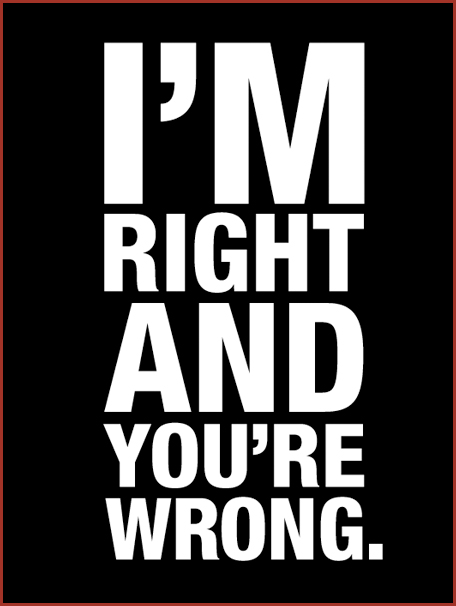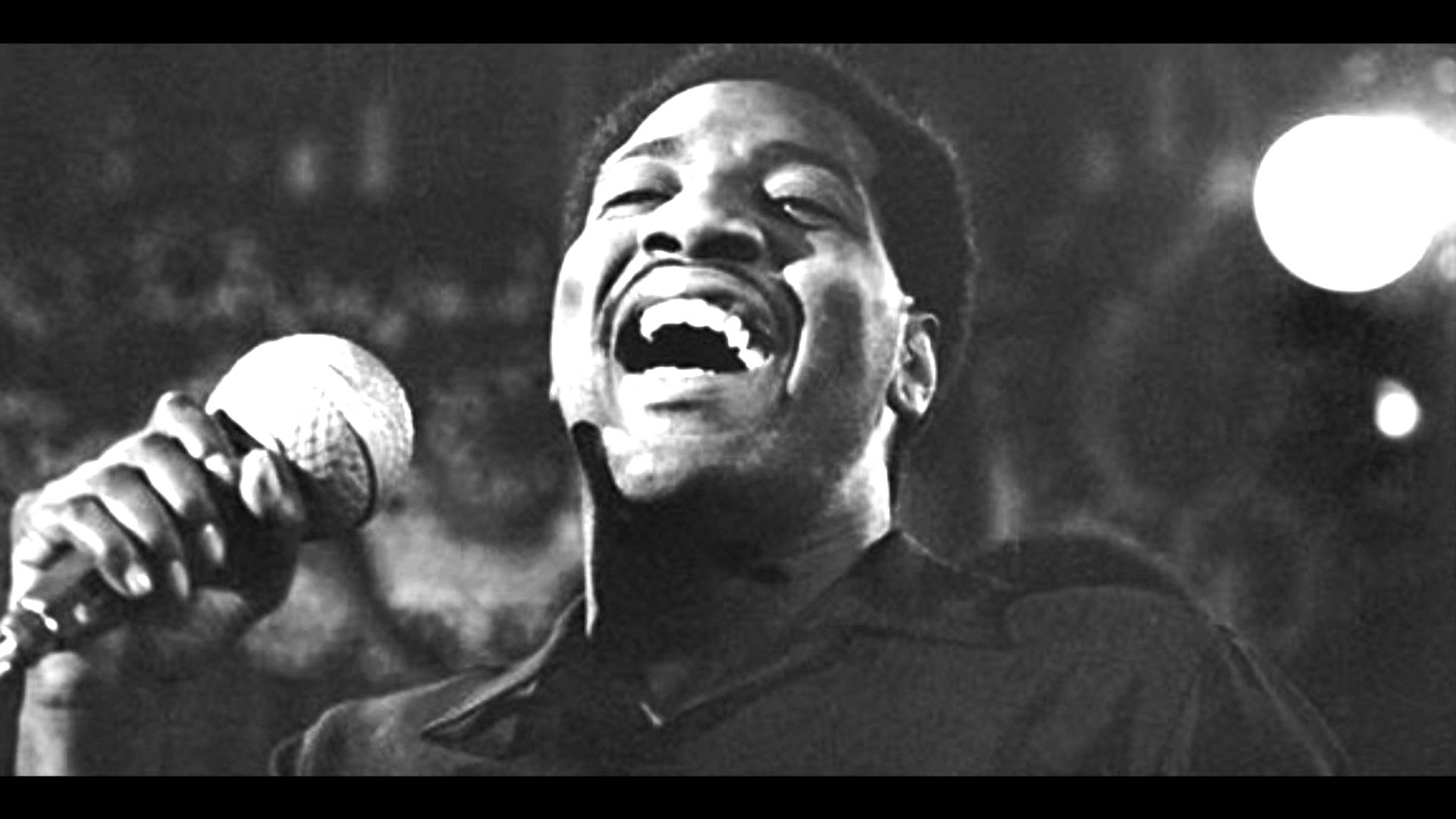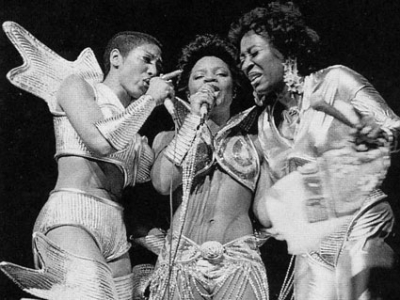When it comes to morality—is something right or wrong—you have a trigger finger. Everybody does.
However open-minded you think you are, the closed-minded parts of you are likely to beat you to the punch every – single – time. These mind-closers include your emotions, hopes, habits, beliefs, prejudices and instincts (like that reptilian fight or flight). These sub-conscious drives literally make you jump to conclusions. It’s as if something fundamental in you were threatened.

A quick Q&A so you’re with me so far:
- The next time politics comes up in conversation, how long does it take you to decide that what you’re hearing is right or wrong (2 seconds, 10 seconds, until the person has stopped talking)?
- On a social issue you know little about, will you give someone you view as religious the benefit of the doubt or be skeptical right away?
- If you color your politics blue, how open to persuasion are you when you hear a red perspective? Same question if your color is red and you’re hearing a blue perspective (Not open at all, tune out most of it, will hear them out, will actually talk to them some more about it)?
- Which hat are you wearing right now?


Your moral judgments are likely to be rendered before you’ve “thought about it” at all. (Your “reasons” for them come afterwards, that is, when you bother to come up with them at all.) And as the “religion” question suggests, your subconscious may have judged what someone will be saying before they’ve even opened their mouths.
So if our unthinking selves are leading us “by the nose,” is it inevitable for the conversation to break down in almost every area where we share things in common?
Actually, it’s not.
But let’s begin by reiterating that your moral judgments—the decisions made in the light of your values—are the most powerful motivators in your life.
I’m writing about “following your values to a good life at work” because of how your jobs can empower you when they are aligned with this evolutionary flow.
However, reconciling what’s rational and deliberate (your work) with what’s subconscious and intuitive (your values) requires you to take one key step. Because moral judgments happen so quickly, it almost always helps when you slow them down.
Why? (1) because you can, and (2) because your reasoning faculties—some of the better angels of your nature—have a chance to inform your moral judgments, making those judgments more nuanced and constructive without losing any of their primal force.
In his groundbreaking Thinking Fast and Slow, Daniel Kahneman (a Nobel Prize winning economist) made much the same point, arguing, among many other things, that when we “slow down” the “fast process” of moral judgment, there is an opportunity to introduce some reason into it. Indeed, many thought that Kahneman’s book was so important when it came out in 2011 that they made animated summaries of it. Here’s one of them that amusingly illustrates the downsides of too-fast thinking in several contexts, including making judgments about almost everything you value.
Two new studies, out this week, got me thinking again about not being so knee-jerk (and predictable) myself. Moral fervor grounds good work but it’s also the seedbed for dogmatism.
Based on surveys of more than 900 people, the researchers behind these studies found some important similarities between the religious and the non-religious people they tested. The most dogmatic believers said their convictions were based on empathy while the most committed nonbelievers claimed to be fact-based analyzers. But in fact, the opposite was true. In both groups, the most certain were less adept at either analytical thinking or the ability to look at issues from another’s perspective.
So where you fall on this spectrum matters.

In his book The Righteous Mind, self-described liberal Jonathan Haidt surveyed 2000 Americans and reported finding that those identifying themselves as liberal were worse at predicting the moral judgments of moderates and conservatives than moderates and conservatives were at predicting the moral judgments of liberals. “Liberals don’t understand conservative values,” he wrote. “And they can’t recognize this failing, because they’re so convinced of their rationality, open-mindedness and enlightenment.”
Dogmatic. Predictable. But, in fairness, almost everyone with a moral perspective sits on a high horse.
Haidt argues persuasively that your values or “moral intuitions” guide your behavior long before you can give your reasons for what you said or did. But he also argues for the effort to become more open to opposing views, to pause and reflect before reacting, and to break up your ideological segregation by seeking out different perspectives. (Haidt talks more about why good people are divided by politics and religion in this video clip of him speaking to Google employees.)
There are several reasons for a deeper consideration of the role that’s played by your values —including your better life and work. But for now, it may be enough to reflect on becoming less dogmatic and predictable whenever your values come racing to your defense.


 A place for “inner cultivation” stands apart from the rushes of stimuli that are so easy to get lost in every day. It’s a space for wondering whether there are deeper satisfactions than the ones that you have now. It’s a time to explore whether you have the desire for anything more.
A place for “inner cultivation” stands apart from the rushes of stimuli that are so easy to get lost in every day. It’s a space for wondering whether there are deeper satisfactions than the ones that you have now. It’s a time to explore whether you have the desire for anything more.

 This time it was Charlie Gray who came to our rescue. Once inside, we were packed like sardines, the only “out-of-towners,” and the crowd in front of and behind us started getting rowdy about whether we belonged. “What are you doing here?” “Go back where you came from.” It was already loud in The Crib but our being there took everything up a notch and Charlie noticed.
This time it was Charlie Gray who came to our rescue. Once inside, we were packed like sardines, the only “out-of-towners,” and the crowd in front of and behind us started getting rowdy about whether we belonged. “What are you doing here?” “Go back where you came from.” It was already loud in The Crib but our being there took everything up a notch and Charlie noticed.

